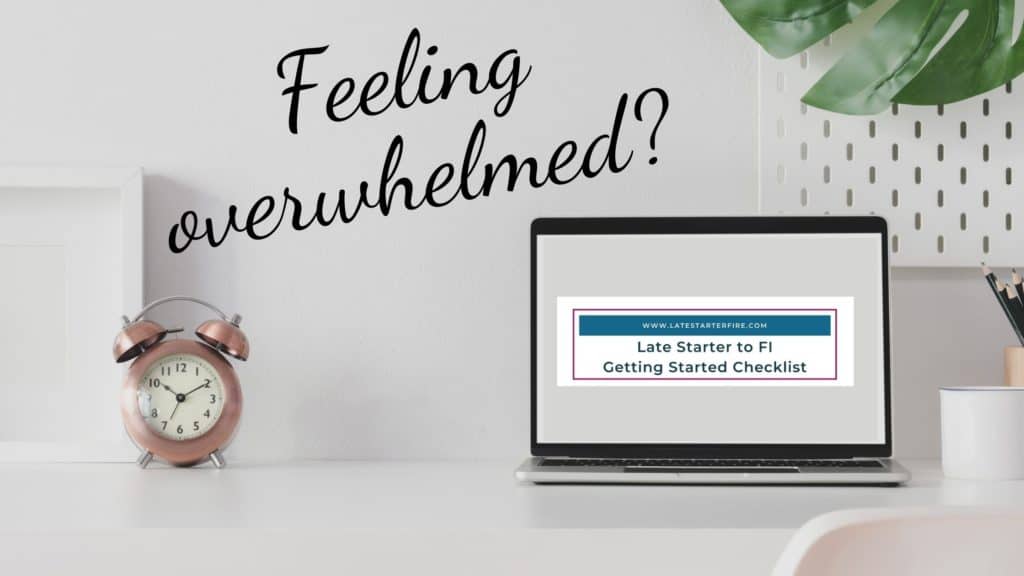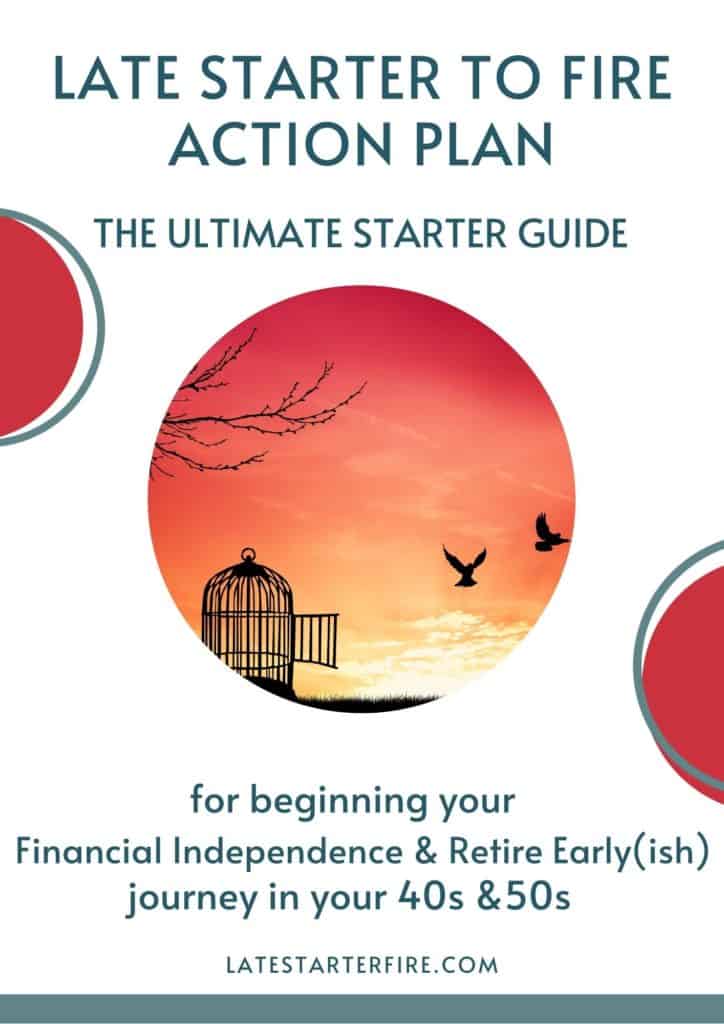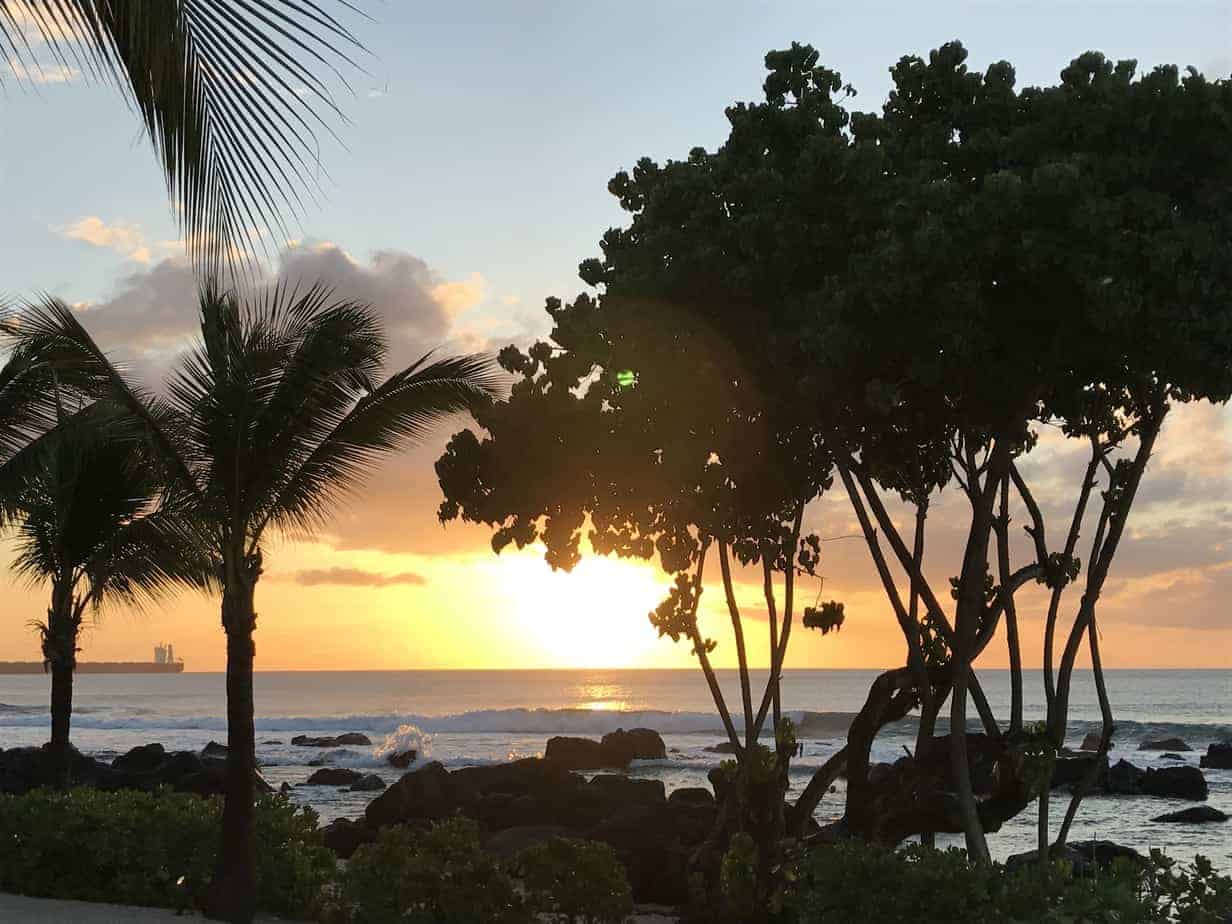Welcome to the Late Starter to FI series!
I am a Late Starter – I discovered the FIRE (Financial Independence Retire Early) movement when I was 47. This was way later, I thought than others who seem to have it all together in their 20s and 30s.
Since I started to write about my own journey, I have discovered there are many more Late Starters like me, yay! It’s such a relief knowing I’m not alone.
I want to share our stories, our unique perspectives and show that it is absolutely not too late for us.
So in this series, I particularly highlight those of us who start our FI journeys in our 40s, 50s and 60s. And explore questions such as ‘where do we start’, ‘can we still retire early(ish)’, ‘what are the specific challenges for us late starters’. We look at our past, not to castigate ourselves but so that you can learn from us.
Please join in the conversation in the comments below. I encourage you to share your story if you fit the profile of a late starter. You absolutely don’t have to be a blogger or podcaster to share your story.
Please email me at info@latestarterfire.com or connect with me on Twitter or Facebook or Instagram.
If you’ve missed any of the previous stories, you can catch up here – Late Starter to FI series
And if you can’t wait to start on your own FIRE journey, check out my step by step ultimate starter guide, Late Starter to FIRE Action Plan.
Disclosure: Please note that I may benefit from purchases made through my affiliate links below, at no cost to you

Today’s late starter is Hi Fi-ing Auntie from Singapore, whom I first connected with on Facebook and later on Twitter.
Auntie is our first late starter from Singapore and second from South East Asia – this goes to show that FIRE is not limited to residents in the US (where it seems the majority of FIRE folks live!)
She shares her journey at Hi Fi-ing Auntie and calls herself “Auntie” because in her own words …. “For those who are not familiar with “Singlish” (the brand of English spoken in Singapore), an “auntie” is a middle-aged unfashionable woman concerned with cheap bargains value-for-money purchases, gossips, and all sorts of useless facts that may be useful to… someone. In that sense, I’m not really an auntie, but I own the stereotype and proudly call myself one.”
You can connect with Auntie on Twitter too.
Take it away, Auntie!
A little about me
I live in Singapore and am in my late 40s. I am a Communications manager in the transport industry. I live in a government (HDB or Housing Development Board) flat that is fully paid-up with my partner who is an engineer.
You need to understand that I’m by nature a very risk-averse and lazy person. This explains to a large extent how my FIRE journey evolved.
Light bulb moment
My light bulb moment was reading “Millionaire Teacher” by Andrew Hallam and checking out his blog articles. This is the first time someone presented a plan for someone based in Singapore.
I was in my early 40s and recently made redundant when I came across these resources. After more than 15 years, leaving the company prompted a reassessment of my financial situation and retirement goals.
I realised that you can never depend on remaining employed until the official retirement age. Ageism and age discrimination is a huge problem in Singapore, particularly for women who tend to assume the bulk of parent-care. At the back of my mind, I knew I had to deal with this but the redundancy forced me to be more serious about my retirement plans.
Are you READY to TAKE ACTION today?
🔥 practical tips & strategies
🔥 step by step guide
🔥 cut the overwhelm, second guessing & paralysis by analysis
My financial situation at light bulb moment
I have been very thrifty ever since I started working after graduation (more than 20 years ago). After graduation, I paid down my study loan very quickly and proceeded to accumulate cash. I saved $100k before I was 30.
However, options for investing were thin at that time and it was between the local stock market (stock picking), unit trusts (high fees) and investment-linked insurance policies. Online brokers were just coming on but the process of getting an account, transferring funds and trading was so complicated that I did not bother, not to mention my concerns about the security of my funds.
So I continued to accumulate savings but in the meantime, started stock picking some blue chips on the Singapore stock market. However, being a lazy person by nature, I did not bother to monitor the shares much. So my portfolio continued to languish at the $100k mark for a very long time through stock splits, share distributions and other corporate actions that diluted the value of my shares.
When I was made redundant, I received a huge payout which I diverted to my mortgage, paying it off in full. Now I realise it’s a financial mistake but it is a decision that I do not regret.
First steps on the path to FI
My very first step on the path to FI was to cancel my investment-linked policies and put the redemption sum into a global stock index fund.
I sold a large portion of my Singaporean shares and put them into a local stock index fund.
And diverted almost 70% of my emergency funds into investments. That still leaves me with one year of savings.
How my relationship with money has changed
It is changing very slowly.
I tend to equate a money value with everything. For instance, if I wanted to start a hobby, I would think about whether or not I could eventually monetise it. It skews my values and I have missed out on so much because there is always a money element in my considerations.
Thanks to Ramit Sethi (author of I Will Teach You to be Rich), I realised it’s costing me enjoyment in life. This tendency is hard baked into my psyche and today I am constantly reminding myself to let go of this money mindset.
Other factors affecting my finances
My mother had been working up until around 3 years ago so she had savings of her own. However her mental health has been declining and I foresee that I will need to chip in in some way in the future. If there is a reason why I feel the pressure to continue earning an income, it is her.
I am divorced and do not have children. Not having children really frees up my financial resources and mental space to take care of my own retirement.

My current financial situation
Andrew Hallam introduced 2 portfolios – the Couch Potato Portfolio and the Permanent Portfolio. Both are suitable for lazy folks like me. I decided on the Couch Potato Portfolio as I did not relish the idea of holding gold.
In short, the Couch Potato Portfolio’s fund distribution is:
50% stocks, 50% bonds
So the way I customise my Couch Potato Portfolio to fit the Singapore context is as follows:
Stocks
Local: I invest about 10% of my annual fund allocation via a retirement vehicle into a Singapore stock index fund. There is a tax benefit in doing so – you can lower your tax bracket. The flipside is that you cannot withdraw from this account penalty-free until after the statutory retirement age (62 currently).
Currently, the Singapore stock index fund returns around 7% annually
Global: I invest 40% of my annual fund allocation into global/US index funds. The historic returns of the funds are around 11%
Bonds
In Singapore, we have a compulsory retirement savings scheme called the CPF (Central Provident Fund). Every working person must contribute 20% of their salary into this fund, with the employer matching up to 17%. So I have a healthy balance in the CPF at the moment. However, I cannot withdraw from the fund until I am 55 years old. It pays 2.4% to 6% interest at the moment.
Many Singaporeans use their CPF to buy homes, which to me jeopardises their retirement. This strategy may work in a booming market where one can hope to sell their properties at a profit but who can guarantee that? In fact, I feel that using CPF for housing makes one tend to overextend. I used the CPF when I first bought my flat but quickly paid off the sum within 6 months.
Currently my portfolio stands at 40% stocks, 60% bonds / CPF.
I hold one year of emergency funds that can be stretched if I am really, really thrifty.
Currently I have zero debt other than a monthly balance on my credit card which I pay off in full.
Specific challenges or advantages of starting late
One of the challenges is the fear of losing it all by changing our financial pathways. For example, it was difficult for me to decide to drastically reduce my emergency funds and divert the money into stocks.
How far along the path to FI am I now?
I am at what some people call LEAN FIRE now. But it’s not my ideal state of retirement. So I hope to be able to continue adding to my retirement funds until I am 55.

Feeling Overwhelmed?
Use this FREE Checklist to start your journey to Financial Independence
How Covid 19 has affected my strategy
Lower job security and possible loss of income are two concerns. The industry my company is in is directly affected by travel restrictions. It has been going through major retrenchments. I am mentally prepared that I may be affected by it.
I would consider adding more to my emergency fund to stretch it to 1.5 years perhaps. But the investment strategy would not change.
What's next?
Because I am an employee, my financial plan is dependent on me remaining employed. So this is one weakness in my plan. And because of the prevalence of ageism in our society, sometimes, retirement is not up to me!
If I somehow lose employment, I would still want to continue earning an income. So instead of a stable full time job, I might switch to contract work which usually comes with lower pay.
I am aiming for a very comfortable retirement at 55 – I feel impatient!
Back to Latestarterfire
Thank you, Auntie for sharing your story and strategy to achieve FIRE at 55. Congratulations on making the necessary changes to ensure you’ll arrive at your destination.
I think the fear of losing one’s hard earned savings if we were to change our financial paths later in life is very prevalent among late starters. And yet, if we carried on as usual, our hope for financial independence at retirement is also diminished.
Singaporeans have long been envied for their CPF – I didn’t realise that
employers provide a match of up to 17% – what a fantastic start to
retirement savings!
I am hoping that as more of the world is vaccinated, your industry will recover soon and redundancies will not continue. Keeping my fingers crossed for you.
I love that name – Couch Potato Portfolio – I too am risk averse and lazy so this would have appealed to me immensely had I come across it earlier 🙂 I’m off to read Millionaire Teacher now!





